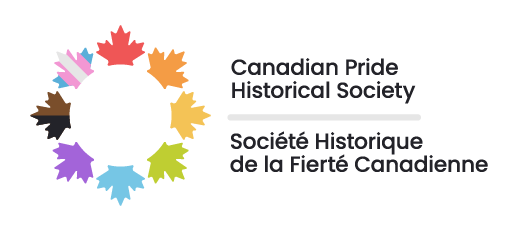This post contains discussions of mental health, medical issues, and suicide. Please take care of yourself and skip this post if you find any of these topics triggering.
From March 17th to March 21st, we recognize National 2SLGBTQIA+ Health Awareness Week, a time for all of us—The 2SLGBTQIA+ community, medical providers, and allies alike—to come together over the topic of 2SLGBTQIA+ health and work to end the disparities and challenges that 2SLGBTQIA+ people face therein.
The theme of National 2SLGBTQIA+ Health Awareness Week in 2025 is “Health Equity NOW!”—which was chosen by the week’s parent organization, the National Coalition for 2SLGBTQIA+ Health. This year’s theme highlights the disturbing reality that health services for the 2SLGBTQIA+ community are under attack, and calls for urgent action on all our parts to both improve access to dignified, safe healthcare and to push for better health outcomes for 2SLGBTQIA+ people in general. The National Coalition lines out three actions that can be taken over the week to advance the fight for health equity: engage with organizations doing crucial work on 2SLGBTQIA+ health, inform the broader public about the importance of 2SLGBTQIA+ health, and unite 2SLGBTQIA+ folks, medical providers, and allies in the fight for solutions to the crises that plague 2SLGBTQIA+ health.
It’s no secret that statistics on 2SLGBTQIA+ health when compared to the health of cishet folks are bleak, but the specifics are still startling. Compared to cishet people, 2SLGBTQIA+ people have higher rates of certain cancers and chronic conditions, as well as substance use—which can cause conditions on its own. HIV is still both a trauma and a true concern, especially for Gay men, and the massive losses the community felt as a result of the virus can never be truly put into words. In terms of mental health, three in ten 2SLGBTQIA+ folks report ‘fair to poor’ mental health compared to only one in ten cishet respondents, and 2SLGBTQIA+ youth are two to three more times likely to attempt suicide than their peers.
In addition, different identities within the 2SLGBTQIA+ community face further unique challenges; Bi+ people, for example, have health outcomes even worse than the rest of the 2SLGBTQIA+ community, as discussed in our post on Bi+ Health Month. Trans folks, however, might be in the worst situation of all. Essential gender-affirming care has been the target of countless policies as of late, aimed at preventing those in need from seeking what can be life-saving care. According to an Ontario-based study, 47% of trans people aged 16-24 considered suicide in the past year, and 19% attempted suicide. These numbers are horrific and remind us that as we speak of 2SLGBTQIA+ health, we must remember to take an intersectional approach so that all inequities in the healthcare system can be remedied.
Of course, one cannot talk about the disparities in 2SLGBTQIA+ healthcare without discussing the indisputable fact that for further marginalized people, things are even worse. BIPOC folks already deal with staggering medical inequities based on race before even considering the medical inequities a 2SLGBTQIA+ BIPOC person can face thanks to both parts of their identity. BIPOC 2SLGBTQIA+ folks on average have 5% higher mental health needs than white 2SLGBTQIA+ folks and 16% higher mental health needs than white cishet people.
If you would like to learn more about the specific statistics of 2SLGBTQIA+ health, the National Coalition for 2SLGBTQIA+ Health’s annual survey from last year (one of the programs they run as a part of National 2SLGBTQIA+ Health Awareness Week) can be found here, a Health Equity Impact Assessment from Rainbow Health Ontario can be found here, and an infographic from the government of Canada can be found here.
National 2SLGBTQIA+ Health Awareness Week is a stark reminder of not only the realities that so often face 2SLGBTQIA+ folks seeking the healthcare they need but also of the importance of equitable, accessible, dignified healthcare for all. We here in Canada have fought diligently for the single-payer healthcare we all enjoy, but we must remember there is still further to go in creating a healthcare system that works at its best for all Canadians, rural or urban, 2SLGBTQIA+ or cishet, no matter the colour of their skin.
If you’re struggling, you can reach out to the Canadian Suicide Crisis Helpline at 9-8-8, or you can contact the folks at the Trevor Project, either on the phone at 1-866-488-7386 or by text at 678-678.







